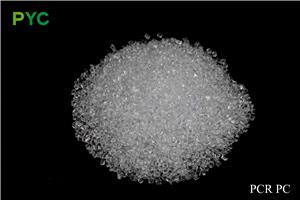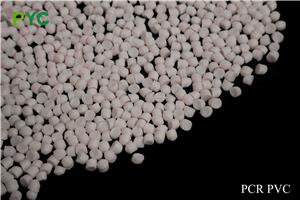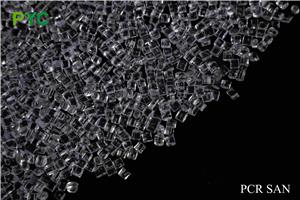Globale Verhandlungen zur Plastikverschmutzung in Busan: Herausforderungen und Hoffnungen koexistieren
Global Plastic Pollution Governance Negotiations Held in Busan: Challenges and Hopes Coexist
From November 25 to December 2, 2024, the fifth session of the United Nations Intergovernmental Negotiating Committee on Plastic Pollution (INC-5) was held in Busan, South Korea, drawing global attention once again to the progress of plastic pollution governance. Although the meeting ultimately failed to reach a legally binding global treaty, the process is still seen as a crucial step toward the systemic governance of plastic pollution worldwide.
Global Focus on Busan: Participation of 178 Countries
The conference gathered over 1,400 official representatives from 178 member states, along with more than 2,300 representatives from intergovernmental organizations, UN agencies, NGOs, academia, and the media. The goal was to establish a legally binding international treaty covering the entire plastic lifecycle to address the increasingly severe problem of global plastic pollution.
Plastic pollution has become the third-largest global environmental crisis, following climate change and biodiversity loss. Data shows that over 400 million tons of plastic are produced worldwide each year, with nearly one-third improperly managed, ultimately flowing into oceans, rivers, and soil, posing severe threats to ecosystems and human health.
Significant Divides on Key Issues
While all nations agree on the goal of reducing plastic pollution, significant differences remain regarding specific governance measures, leading to slow progress in negotiations.
Limits on Plastic Production
The high-ambition coalition, including the European Union, the African Union, Canada, Japan, and more than 100 other countries, advocates limiting plastic production at its source and setting global reduction targets. They argue that only by controlling plastic production can pollution be fundamentally curbed.
On the other hand, low-ambition countries such as Saudi Arabia, Russia, Iran, and India oppose production limits, believing that efforts should focus instead on improving waste management and recycling systems to avoid economic disruptions and negative impacts on the petrochemical industry.
Regulation of Hazardous Chemicals and Microplastics
There are significant disagreements between developing and developed countries over the regulation of hazardous chemicals in plastic products and microplastic pollution. Some developing countries worry that overly stringent environmental standards will increase production costs and negatively affect the recycled plastics industry.Funding and Technological Support Mechanisms
Another key point of contention is financial support. Developing nations are demanding financial and technical assistance from developed countries to address plastic pollution, arguing that historical emissions responsibilities should be considered to ensure fair and equitable global governance.
Konferenzergebnis: Keine Einigung erzielt, aber Grundlage für Zusammenarbeit gestärkt
Nach einer Woche intensiver Verhandlungen gelang es dem INC-5 nicht, einen Konsens über den endgültigen Text zu erzielen, doch das Ergebnis war die Schaffung desdritter Entwurf des Textes des VorsitzendenDie Teilnehmer einigten sich darauf, die nächste Verhandlungsrunde im Jahr 2025 abzuhalten, um die Gespräche über ungelöste Fragen fortzusetzen.
Zum Abschluss des TreffensInger Andersen, Exekutivdirektorin des Umweltprogramms der Vereinten Nationen (UNEP),angegeben:
Das globale Engagement zur Bekämpfung der Plastikverschmutzung ist klar und unleugbar. Obwohl bei diesem Treffen keine endgültige Einigung erzielt wurde, zeigten Vertreter aller Nationen ihre starke Bereitschaft zur Zusammenarbeit und zur Lösung der Herausforderungen. Dies ist ein wichtiger Schritt in Richtung globaler Governance.
Reaktionen von Umweltorganisationen und der Industrie
Umweltverbände äußerten sich enttäuscht über das Scheitern einer Einigung. Greenpeace betonte die Dringlichkeit der globalen Plastikverschmutzungskrise und forderte von den Regierungen strengere politische Maßnahmen und klare Verpflichtungen zur Produktionsreduzierung.
Mittlerweile haben mehrere multinationale Konzerne ihre Unterstützung für den Vertragsprozess zum Ausdruck gebracht.IKEA, Unilever, Walmart,und andere große globale Verbrauchermarken drängten darauf, dass das zukünftige Abkommenvorschreiben, dass mindestens 30 % der Kunststoffverpackungen aus recycelten Materialien hergestellt werden müssenund ein einheitliches Recyclingsystem einrichten, um eine Kreislaufwirtschaft zu fördern.
Die Bedeutung des Busan-Treffens für die Recyclingkunststoffindustrie
Trotz der schwierigen Verhandlungen sendete das Treffen in Busan ein positives Signal:Die weltweite Aufmerksamkeit für die Bekämpfung der Plastikverschmutzung nimmt weiter zu und schafft beispiellose Chancen für die Recyclingkunststoffindustrie..
Da die globalen Richtlinien strenger werden,Die Verwendung von recycelbaren und recycelten Kunststoffen wird zu einem unaufhaltsamen TrendSobald der Vertrag abgeschlossen ist, wird er voraussichtlichweltweit steigende Nachfrage nach recyceltem Kunststoff, Förderung von Fortschritten in Recyclingtechnologien und Förderung der Entwicklung grüner Lieferketten.
Branchenexperten meinen, dass angesichts des bevorstehenden politischen Drucks und der MarktveränderungenUnternehmen aus recyceltem Kunststoff weltweit sollten sich proaktiv vorbereiten, indem sie die Produktqualität verbessern und Zertifizierungssysteme verbessern, wie zum BeispielGRS-Zertifizierung (Global Recycled Standard) und Ausstellung eines TC (Transaction Certificate).




